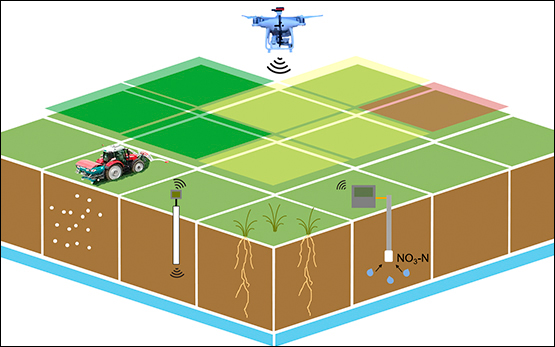With the increasing digitalisation of society as a whole and agriculture in particular, ‘smart’ approaches in animal and plant production are gaining in importance. Automation and mechanisation have already led to an extensive streamlining of agricultural production, with the factor of ‘work’ in the form of machines and mechanical equipment being replaced by capital. Over the last 30 years, traditional mechanisation has increasingly been supplemented with information and communication technologies (ICTs). Through their use, people are released from routine tasks and can make more efficient, more-targeted used of the freed-up labour resources. At the same time, a series of financial, structural and personal factors determine the acceptance, and hence the use and spread of new technologies in agriculture.
Sensor-based, automated processes are increasingly available for optimising production systems and for the quality assurance of production processes and products. In addition to decision-making bases for the use of humans and machines, Smart Farming (SF) systems and their networking offer new potentials for a more economical, emission-reducing and resource-saving production. High labour costs, quality standards and the increasing need for obligatory documentation can also be accommodated by automated solutions. Here, there is a fundamental need for research to determine the conditions in which new technologies can provide added value, and to consider how the innovation process will proceed.






